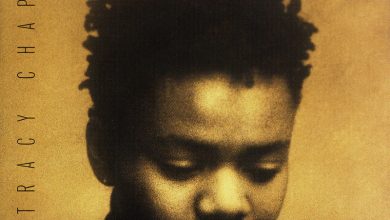“REDMERCEDES”: A Rapper’s Vehicle for Truth

Image courtesy of AmineVEVO via YouTube. / CC BY-NC 2.0
In March of this year, American rapper Aminé released a single entitled “REDMERCEDES,” a rhythmic song marked by blaring sirens and a chorus accompanied by a low voice. “REDMERCEDES” is equal parts driving music (pun intended) as it is a yell-inducing party song with a memorable beat. The song fit the ranks of early 2000s hip-hop and is a superb follow-up to Aminé’s Billboard 100 debut single, “Caroline.” But the buzz surrounding the Habesha rapper’s video for “REDMERCEDES” didn’t come due to its catchy tempo or benign lyrics about enjoying time with his friends in his luxurious car. No, the uproar came from the music video in which him and others used “whiteface” —makeup used to make the skin look white.
The “REDMERCEDES” music video opens at a car dealership, where all of the Black employees are diligently working until the peace is interrupted by their boss (played by Aminé) complaining about one of his workers. His already upsetting morning is further worsened when three “white” men (the lead also played by Aminé, but in “whiteface”) walk into the fictional auto group. All three men are dressed for a golfing event and the boss leans over to an employee and whispers: “watch them.” The moment the employee interacts with the men, they introduce themselves and say they’re looking for a nice car, but use African American Vernacular English, something that contrasts unusually with their appearance. The employee asks to shorten the lead of the trio’s name to make it easier for her to say, but one of the men accuses her of being racist. She denies this accusation, claiming that she doesn’t “see” color but they say they’ll call the “NWACP,” which is later revealed to be the fictional National White Association for Care and Pleasure. The song begins from there, with intermittent shots of the employers ensuring that a Black couple purchases a car while the three “white” men receive no assistance.
The video is a breath of fresh air amidst a slew of trite music videos released this year. Its reception, however, has been mixed, with opponents of the video’s message crying, “What if the roles were reversed?” and “This wouldn’t be allowed if the races were switched.” But, sadly, the unvarnished truth of the music video is that in real life, the roles really are reversed.
Every instance of discrimination toward the trio of “white” men who enter the car dealership mirrors actual racial microaggressions expressed toward Black people. Racism is pervasive at car dealerships, as dealers tend to ask for higher prices from Black buyers, since they expect them to be less informed about negotiating car prices. In turn, white buyers are therefore assisted more and guided toward better deals by workers who desire to sell a car. Aminé also sheds a comical light on how just by the three men’s appearance, they are immediately frowned upon. It touches on the inherently discriminatory aspects of default “appropriate” dress code, which stifles Black culture and requires assimilation to white culture. The way the three men are dressed is put into focus for a reason: in real life, if three Black men entered wearing baggy clothing and pants that weren’t at their waist, they would have been met with the same reaction by white workers. The way they speak is also put under the microscope, a critique of how AAVE is often interpreted as being inferior to standard English and a definitive marker of a lower education level, rather than being interpreted as a variation of the English language. With this in mind, the video also displays the employee’s attempt to adjust the customers’ names as a rendition of the stale jokes made about Black names in order to make them more palatable to white people. Collectively, the video reflects back obvious transgressions against Black people.
Music videos are often overlooked as media to send a strong message, especially commentary on such a prevalent problem today, but Aminé does a solid job at conveying this message. “Whiteface” does not and cannot have the same effect as “blackface,” something that has been used historically to dehumanize and degrade Black people. By igniting people with his portrayal of race relations in such an ordinary setting, the “REDMERCEDES” music video cleverly unfolds the core of the problem. If viewers are capable of seeing what is wrong in the video as it is, then they are more than capable of seeing how we have normalized how Black people are mistreated in everyday society.
So if you’re one of the people saying that people would be angry if the video changed around the races of its cast of characters, you’re right. Take a look around: they are angry.




